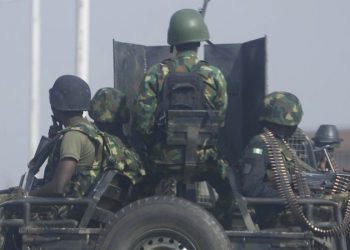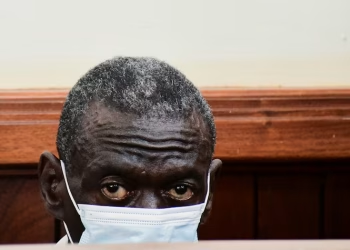More than 40 people were killed in a brutal attack by an Islamic State-affiliated militant group, Al-Shabaab, in the northeastern region of the Democratic Republic of Congo (DRC). The assault occurred early in the morning on July 27, 2025, in the town of Komanda, which is located in the mineral-rich Ituri province. The majority of the victims were worshippers participating in a night vigil at a local church, with children among the casualties.
The attack, attributed to the Allied Democratic Forces (ADF), a group affiliated with the Islamic State (IS) Central African Province, left 43 people dead, including 19 women and 9 children. In addition, several shops and businesses were looted and set on fire during the violence. The UN peacekeeping mission in DRC (MONUSCO) condemned the assault, calling it a violation of international humanitarian law.
The Growing Threat of Al-Shabaab in Central Africa
The ADF has a long history of operating across the region, originally emerging from Uganda in the 1990s. Today, the group is part of the broader Islamic State’s Central African Province, and its attacks have been a regular occurrence in both Uganda and DRC. The most recent attack in Komanda is part of a series of violent operations that have destabilized the region for years.
In this particular assault, many victims were killed using machetes, and the military reported several others were seriously injured. The Congolese government, in collaboration with Ugandan forces, has vowed to continue its offensive against ADF militants, but despite this, attacks like these continue unabated.
Ongoing Efforts to Combat the Militants
The Congolese army has launched several joint operations with the Ugandan military to counter the threat posed by the ADF, including the recent mission to secure and stabilize affected areas. However, this latest incident highlights the persistent security challenges in the region, where multiple armed groups vie for control over lucrative mining regions and local resources.
The ADF’s brutal tactics are seen as part of their larger goal of spreading terror and maintaining control in these strategically important areas. The attack in Komanda, which specifically targeted a peaceful place of worship, underscores the extreme violence and disregard for human life that has become a hallmark of the militant group’s operations.
Regional and International Responses
In the wake of the attack, both the DRC and international bodies like the UN have strongly condemned the violence. The UN mission in the country has called for greater protection of civilians and for stronger actions to prevent future atrocities.
As the situation in DRC remains volatile, it’s clear that the fight against the ADF and other insurgent groups is far from over. The collaboration between the DRC and Uganda, however, offers some hope for containing the spread of militant extremism in the region.
The attacks have drawn attention to the ongoing conflict in Central Africa, which continues to destabilize the lives of ordinary citizens caught in the crossfire. The international community must now step up its support to ensure lasting peace and security in a region plagued by persistent violence and extremism.
Stay updated on developments from the region as security forces continue their operations against extremist groups like Al-Shabaab and ADF.












